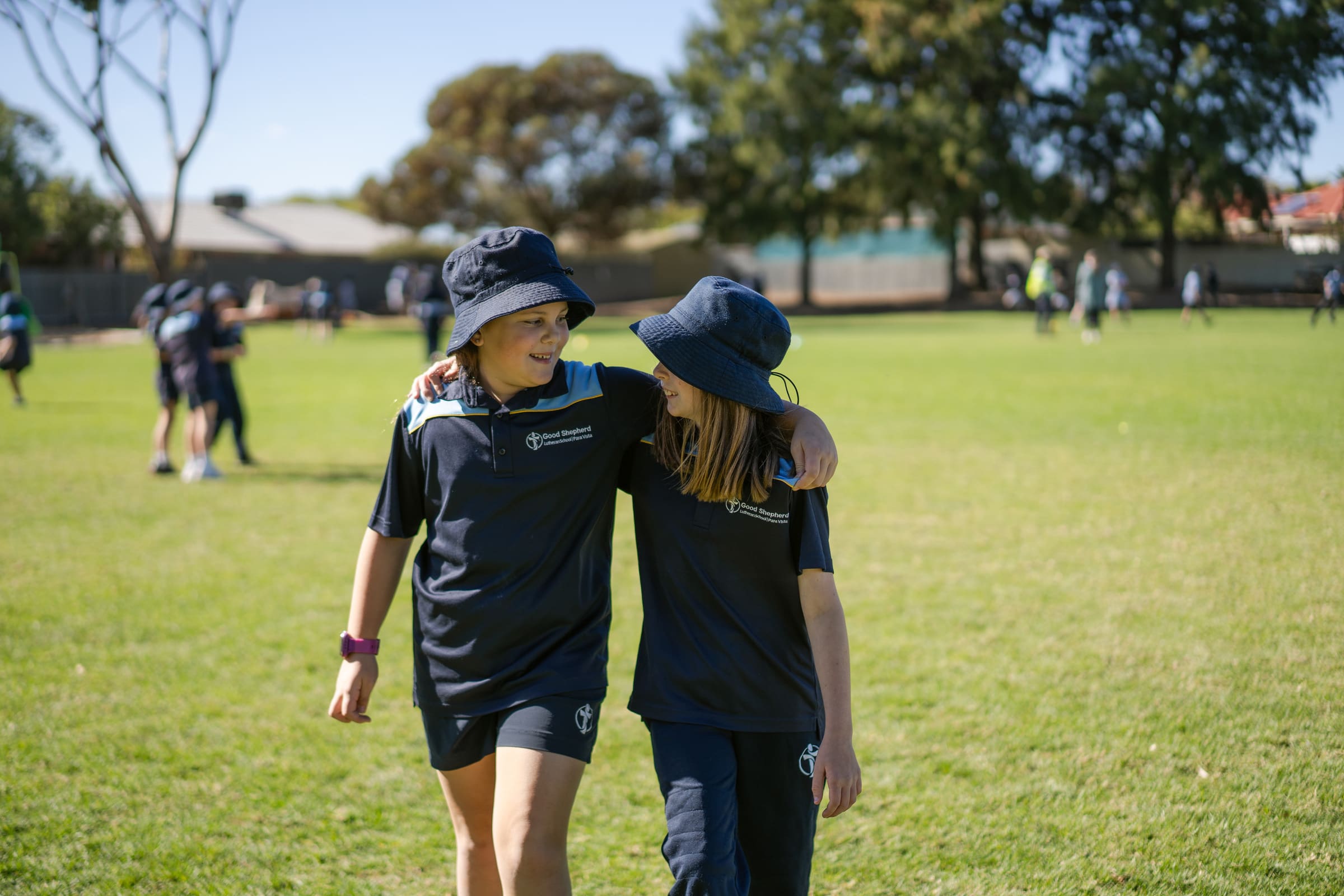Restorative Practices at Good Shepherd Lutheran School
At Good Shepherd, we’re committed to creating an environment that grows learners who are compassionate, purposeful, adventurous, and relational. We believe that strong relationships are the foundation of a thriving community and we use restorative practices as a key part of our approach to managing behaviour, resolving conflict, and nurturing a culture of care.
We don’t view restorative practices as simply to address issues when they arise. Instead, we use them proactively to teach students valuable life skills that support their personal and academic growth.
What Are Restorative Practices?
Restorative Practices focus on rebuilding and repairing relationships, rather than punishing behaviour. Conflict and harm are part of human interaction, and when they arise, we view them as opportunities for learning and growth.
This approach goes beyond managing behaviour in the classroom – it is about building a school culture where students learn to resolve conflict, take responsibility for their actions, and develop empathy for others. It also helps prevent behaviours of concern from escalating by teaching students to address small issues before they become larger problems.

Moving Beyond Punishment
In the past, punitive punishment may have been seen as effective and anything else is just a slap on the wrist. However, studies now show that restorative practices lead to more positive, long-term outcomes for students.
Rather than simply focusing on punishment, restorative practices help students understand the impact of their behaviour on others. By hearing from peers, staff, parents, and carers about how their actions have affected the community, students form an understanding of the world outside of themselves and grasp the importance of accountability and empathy.
Through the restorative process, students:
- Recognise the consequences of their actions
- Contribute to repairing the harm caused
- Are reintegrated into the community in a positive, supportive way
- Gain the skills and understanding needed to make better choices in the future and build healthier relationships
The Benefits of Restorative Practices
This approach to behaviour offers a wide range of benefits for both students and the broader school community, including:
- Students feel that they belong, and that their relationships with peers, staff, and families are valued and respected.
- Restorative practices teach students important life skills such as empathy, self-awareness, conflict resolution, and accountability, which are crucial both inside and outside the school environment.
- Students who are supported through restorative practices are more likely to feel safe, understood, and supported.
- Schools that use restorative practices often see a reduction in bullying, harassment, and other harmful behaviours. Additionally, there tends to be a decrease in suspensions and absenteeism, leading to more time for learning.

A Range of Restorative Approaches
Restorative practices at our school include both informal, proactive strategies and more formal, responsive approaches. We use the appropriate approach depending on the situation at hand:
- Informal Practices: These everyday interactions help prevent minor issues from escalating. They can include quick restorative questions, check-ins, and peer support strategies that encourage students to reflect on their actions and resolve conflicts before they grow.
- Formal Practices: When conflicts or harm are more significant, we use formal restorative conferences. These meetings bring together all involved – students, staff, and parents – to discuss the incident, reflect on its impact, and collaborate on solutions. The aim is to repair relationships, rebuild the community, and ensure everyone’s voice is heard.
Supporting Conversations at Home
Restorative practices are not limited to the classroom. Parents and carers play an important role in reinforcing the lessons of restorative practices at home. By using restorative questions, families can help children reflect on their behaviour and understand the impact on others.
Here are some restorative questions you can ask when something goes wrong:
- When your child has done the wrong thing:
- What happened?
- What were you thinking at the time?
- Who has been affected by what you have done, and in what way?
- What do you think you need to do to make things right?
- When your child has been harmed by someone else’s behaviour:
- What did you think when you realised what had happened?
- What impact has this incident had on you and others?
- What has been the hardest thing for you?
- What do you think needs to happen to make things right?
By asking these questions, you can help your child understand that even when things go wrong, it’s possible to repair the harm and restore relationships.
Restorative Practices Involve the Whole Community
At Good Shepherd Lutheran School, restorative practices are central to our approach in creating a safe and supportive community. While we take the lead in guiding and implementing these practices, we recognise that families play a crucial role in supporting the process. When conflict arises, we work closely with parents, helping them understand and apply restorative practices at home. By partnering with families, we ensure students not only recognise the impact of their actions but also develop the skills to make amends and restore relationships, both within the school and in their wider communities.
Through this collaborative effort, we ensure our students not only resolve conflicts but also develop the skills needed to navigate relationships with respect, empathy, and accountability – skills that extend beyond the classroom and are vital for success in all areas of their life.
Resources for Parents
For more detailed information and resources about restorative practices, please review the following:
- Department of Education: Behaviour Support
- Monash University: Building a stronger school community through restorative practice – a case study
